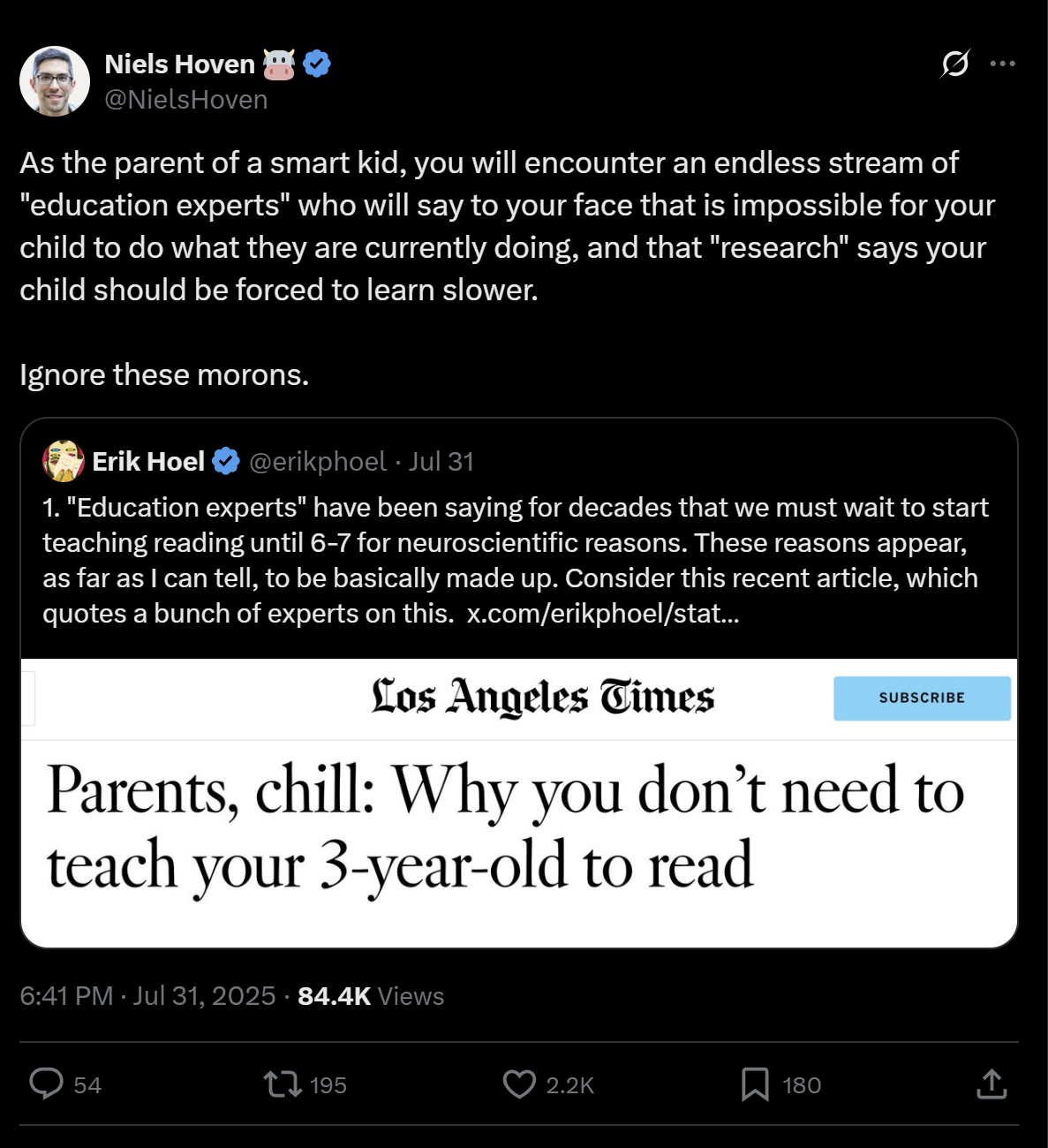THOUGHT: Einstein Had a Tutor
TREND: High-Impact Tutoring
TOOL: What to Do With Genius
Einstein Had a Tutor
Newton said he stood "on the shoulders of giants." We remember the genius—we forget the giants who lifted him up.
We mythologize genius as isolated. Some kid alone in a room, brilliant thoughts from nowhere. But Max Talmud introduced Einstein to geometry at age 12. Bertrand Russell had tutors until 16. John von Neumann's governesses taught him languages. Darwin hired tutors at university. Name a genius, find a tutor.
Erik Hoel calls this "aristocratic tutoring"—not SAT-prep, but intellectuals spending real time engaging young minds. We stopped doing it. And we stopped making Einsteins.
The internet gave us information access. But access isn't engagement. What's missing isn't information—it's the Max Talmuds. The people who hand you the right book at the right time and stick around to talk about it.
Modern homeschoolers have options aristocrats would envy. Virtual tutors, AI tutors, college students looking to earn. You can recreate the conditions that historically produced genius.
High-Impact Tutoring
After COVID, schools tried something desperate: actual tutoring. High-impact tutoring—at least three times a week, 30 minutes minimum, consistent tutor, no more than four students. Federal money flooded in. And it worked!
Liz Cohen spent 18 months visiting schools across seven states for her new book The Future of Tutoring. She found that places that treated tutoring as strategy (not just intervention) saw results.
"The average tutored student was above 98% of the students in the control class."
One D.C. principal got a tutor for every student in her school. Louisiana put $30 million into tutoring and now serves 240,000 kids.
Cohen heard repeatedly that kids are hungry for meaningful adult relationships beyond what even the best classroom teacher can give a full class.
We've known since the 1980s that tutored students perform two standard deviations better. We just weren't desperate enough to try it at scale until COVID forced our hand.
Read the whole thing at The 74 Million
What to Do With Genius
So what do you actually do when your kid outpaces the curriculum?
Enter Brilliant—self-paced, interactive STEM learning used by 10 million people.
Brilliant is hands-on problem-solving. Your kid works through challenges, gets instant feedback, builds intuition.
The platform says ages 13-113, but advanced younger learners can absolutely use it.
At $25/month, Brilliant covers everything from foundational math to quantum mechanics, AI, and Python. Award-winning teachers from top institutions design the courses.
Try Brilliant free for 30 days
Tweet of the Day

Education experts designed a system that produces worse outcomes with each passing year, then get mad when parents opt out.
Maybe the experts should learn slower?
Subscribe to The OpenEd Daily
Join 17,000+ families receiving curated content to support personalized learning, every school day.
.webp)
.png)
.avif)


.png)
.png)
.png)